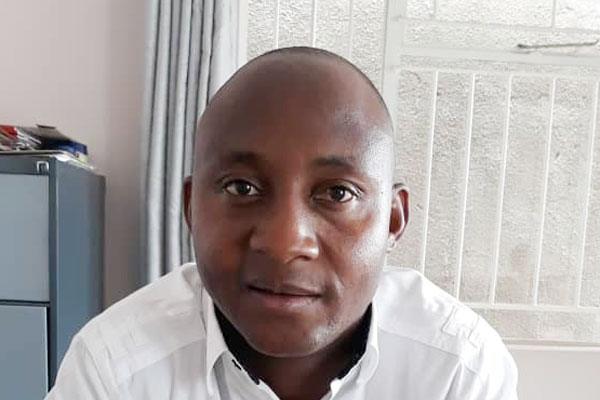
health talk:with Dr Johannes Marisa
Everyone at one point in life has heard about DNA testing. Some think the test is offered abroad while others think it is just a simple test. So many questions have been posed to us as practitioners about the myths and truths of DNA testing. Technology has come to change the face of medicine and social infirmities.
According to Tinashe Mugabe, a renowned scientist who works at Global DNA in Eastlea, Harare, the paternity results are sometimes alarming with a 70% negative result in 2018 and 63% in 2019. This shows the high level of irresponsibility and infidelity and up to 70% of men would keep children who were not theirs had they not done the tests.
There are so many questions that need answers and below are some of them.
What is DNA testing?
DNA means deoxyribonucleic acid, a self-replicating material in living organisms and a carrier of genetic material from generation to generation. DNA testing is thus genetic testing that is used to identify changes in DNA sequence or chromosome structure. Genetic testing can also include measuring the results of genetic changes such as ribonucleic acid (RNA) analysis as an output of gene expression. DNA fingerprinting is thus a chemical test that shows the genetic make-up of a person or other living things. It is used as evidence in court to identify bodies, to track down blood relatives and even to look for cures of diseases. Usually the results for ancestral DNA tests are 99.9% accurate.
Which tests are offered locally?
Many people do not know about the existence of the following tests in Harare and Bulawayo. Testing is categorised as peace of mind and legal testing. Peace of mind is basically for one to have personal knowledge of what is happening while legal DNA testing involves requests which come from statutory bodies like courts of law. Results are forwarded to the respective bodies. It is imperative that citizens know that the following tests are done locally:
- Chamisa under fire over US$120K donation
- Mavhunga puts DeMbare into Chibuku quarterfinals
- Pension funds bet on Cabora Bassa oilfields
- Councils defy govt fire tender directive
Keep Reading
l Paternity testing l Infidelity DNA testing l Identification of relatives 1.Paternity testing Most DNA enquiries circle around paternity testing with a lot of men desiring proof of paternity of children. The results for the past two years show an unprecedented magnitude of infidelity which is unhealthy in this era of HIV and Aids. The 63% negative result in 2019 is not pleasing at all. We should be careful and considerate when we indulge in sexual activities.
How are paternity tests done?
Paternity tests can be done on walk-in or booked patients and these tests can be done from as early as two months of pregnancy. This is called pre-natal paternity testing. Blood samples are taken from the mother as well as from the suspected father. DNA fingerprinting is done and results are out within seven days. Post-natal DNA testing is done when the baby is born and it includes the baby, mother and the suspected father. Blood is used to identify DNA.
If the mother is not available, testing can be done between the suspected father and the child. If the father is not available, two other siblings can be used and this is important for issues of inheritance where they may be disputes to be solved.
2. Infidelity DNA testing Many people are not aware that this test is done next to them along Samora Machel Avenue in Harare. Upon suspecting that your partner is cheating, you can make use of inner garments like panties to profile all the DNA there. This can be done to both men and women and profiling of DNA in suspected infidelity will reveal your partner’s DNA on the panties on top of foreign DNA for the other men or women. The results are out within seven days.
3. Identification of relatives Relatives can be identified after occurences such as accidents where genes have to be matched with the survivors. Survivors can provide their clothes, laundry or blood which can thus be used to identify victims. For a lot of accidents where numerous people perish, authorities have resorted to DNA matching for identity.
Be faithful, careful and honest at the same time. HIV and Aids and the whole army of sexually transmitted diseases are waiting to attack you.
lDr Johannes Marisa is a medical practitioner and public health practitioner who writes in his own capacity. He can be accessed on [email protected].











